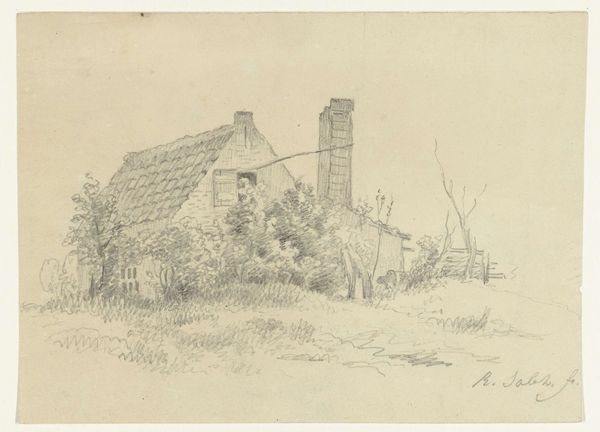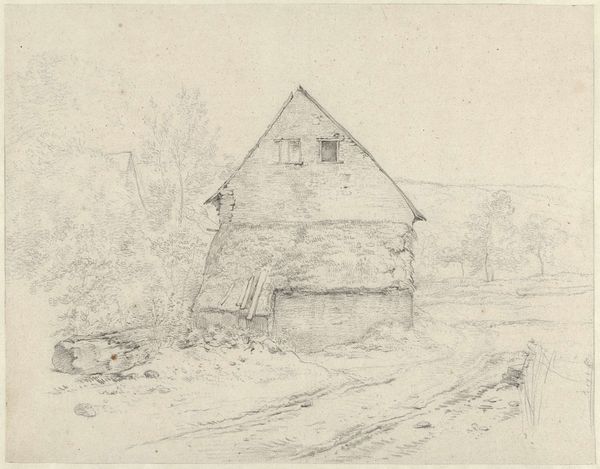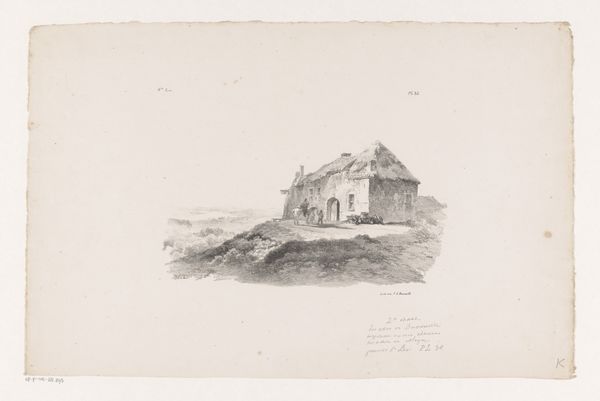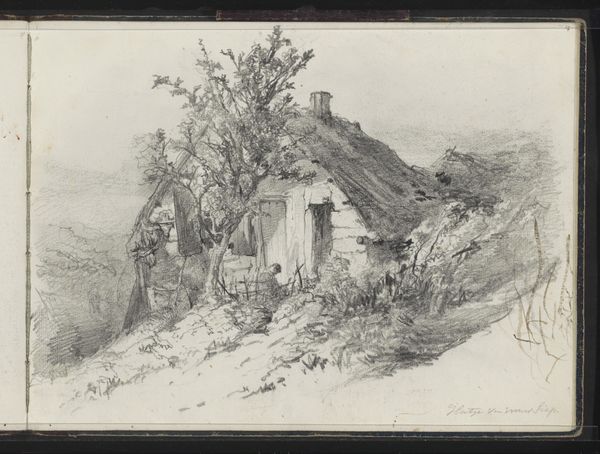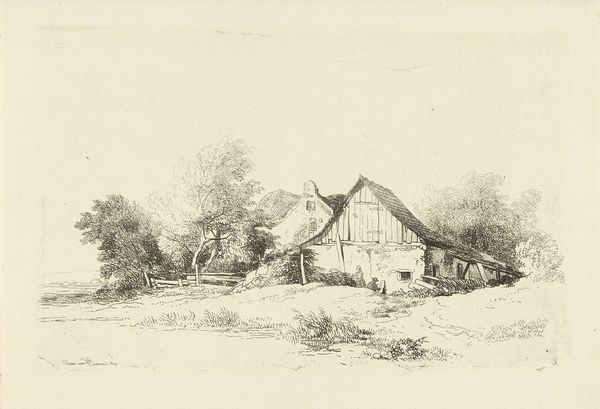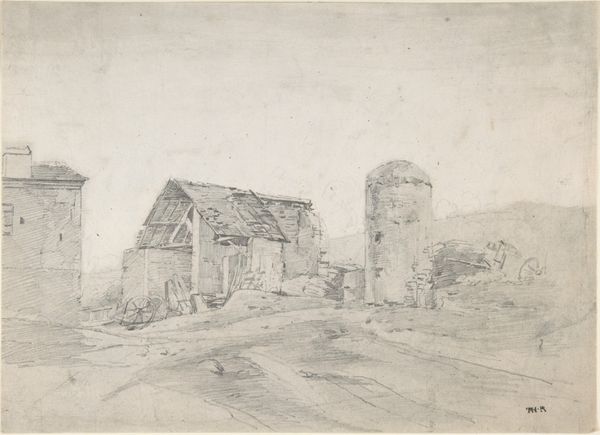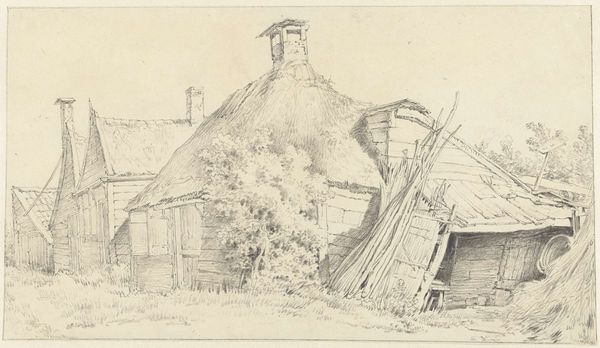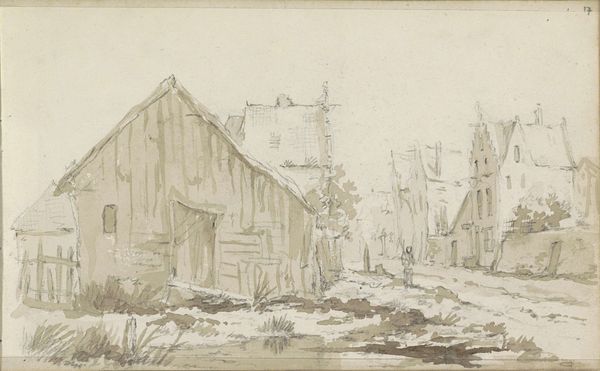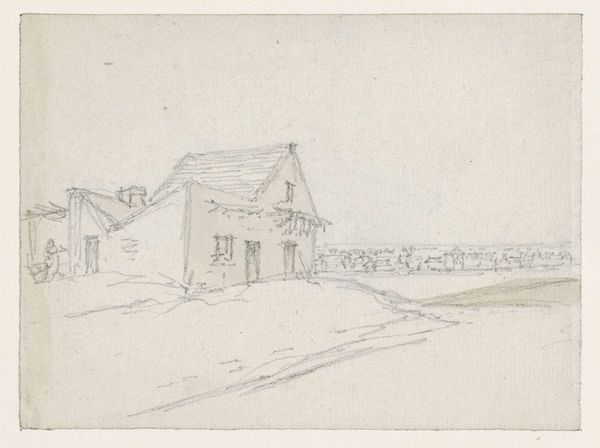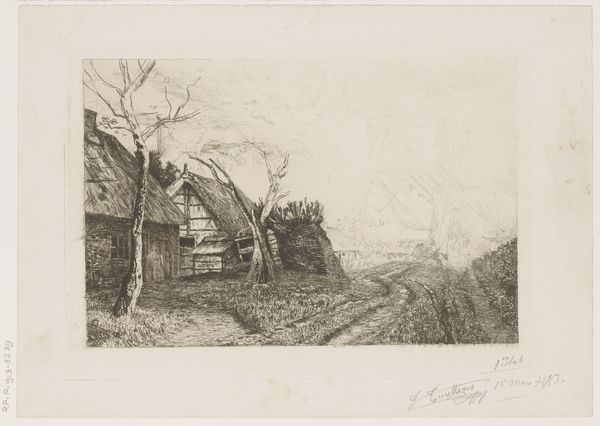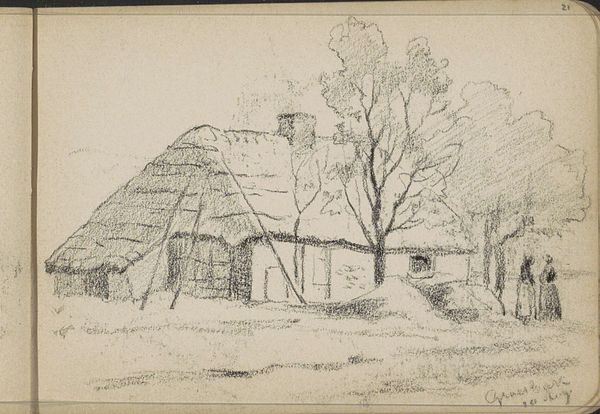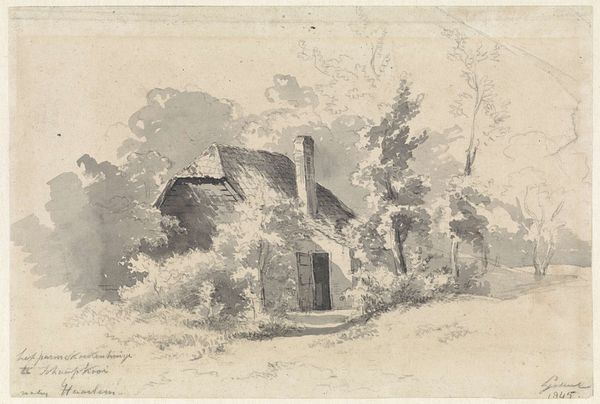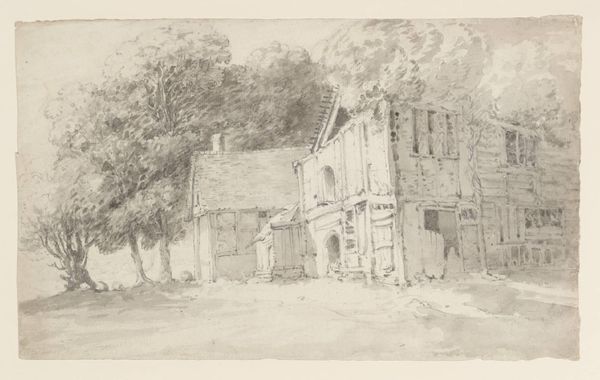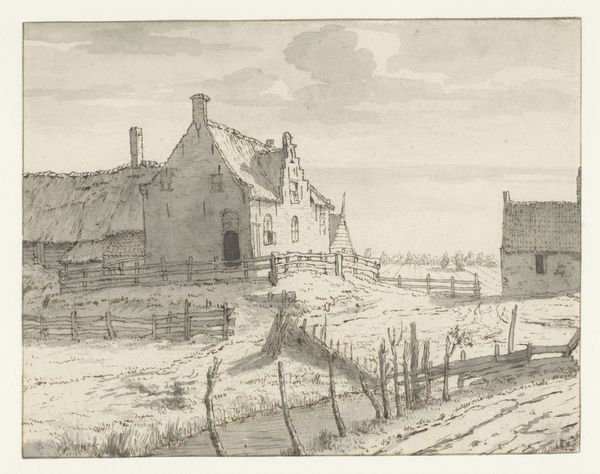
drawing, pencil
#
drawing
#
pen sketch
#
pencil sketch
#
landscape
#
pen-ink sketch
#
pencil
#
pen work
#
sketchbook drawing
#
genre-painting
#
northern-renaissance
#
realism
Dimensions: height 247 mm, width 357 mm
Copyright: Rijks Museum: Open Domain
Albertus Brondgeest made this pencil drawing, titled 'Stone Quarry in Bentheim,' sometime in the first half of the 19th century. The image depicts a dilapidated stone quarry building in Bentheim, Germany. The buildings are rendered with close attention to the effects of weathering and decay. What might this image tell us about the social conditions that shaped artistic production in the Netherlands at that time? Holland in the early 1800s was experiencing a period of economic decline and political instability. This may have led artists to focus on themes of decay and decline in their work. More broadly, the Dutch Romantic movement emphasized the importance of individual experience and emotion. Artists turned their attention to ordinary subjects, such as landscapes and scenes of everyday life. By examining archival sources such as letters, diaries, and newspapers, we can begin to understand the complex social and cultural forces that shaped this work of art.
Comments
No comments
Be the first to comment and join the conversation on the ultimate creative platform.
